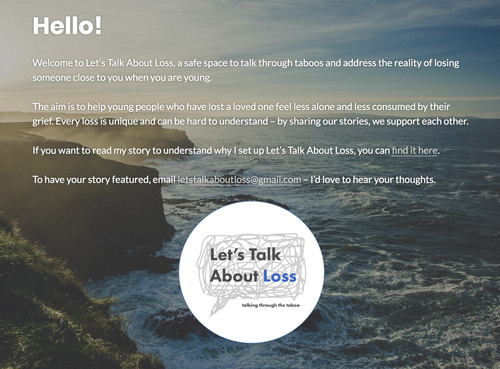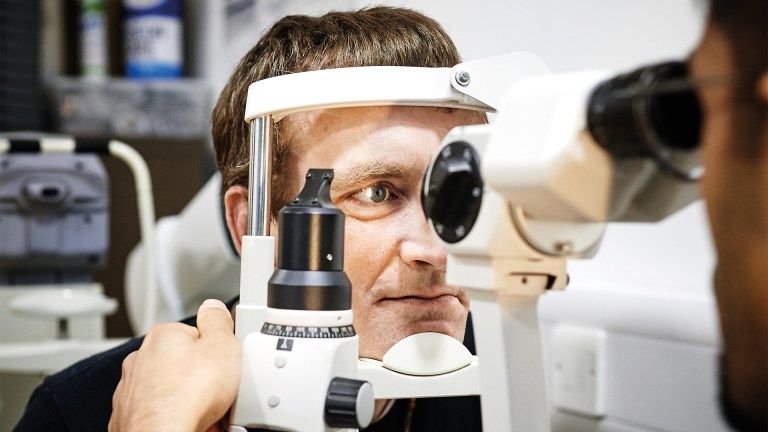Have you ever wondered what it would be like to be pulled into a black hole? The inevitability of the darkness, the struggle against the force, the crushing pain, the emptiness of everything? On July 2 2015 I sat on the side of a bed and watched as my mum took her final breath. In that moment, I joined the group of people who have lost someone close to them far too early, and felt a new level of emptiness, grief.
I was 20 years old when my mum died. I’m now 23 and I still tense when people talk about their mothers, panic when someone asks me about my parents and dread meeting new people because I’ll have to tell them ‘the conversation ender’ as I like to call it: my mum is dead. Luckily, I am surrounded by amazing family and friends and have experienced love, joy and hope since mum died. I love talking about mum and share stories of her so that such a wonderful person is not forgotten. The problem is that for many of us loss is hard to talk about.
If you’ve lost someone close to you – whatever your age – you’ll know that sometimes it is impossible to put feelings into words, and talking about it may not always be helpful. There have been many times when I have screamed, thrown things or sat and sobbed, simply because there are not always words. If you’ve tried to support a friend or family member who has been bereaved, you may have had no idea what to say. Wanting to make it better but unable to.
Talking is really important, and that’s something that I’ve been learning in the three years since I lost mum. I have depression and anxiety, and started having scary panic attacks about a year ago, simply because I was bottling up my grief and not allowing my brain to actively process it. I went to see a fantastic counsellor who taught me the importance of saying “I’m not OK” so that others could help me.
There are currently no national charities reaching out to people aged 16-30, and Let’s Talk About Loss aims to change that
Despite having two siblings and friends who had lost parents, when I lost mum I thought I was completely alone in my grief. I set up a support network in 2016, called Let’s Talk About Loss. It started as a website where anyone can share their stories of loss, grief and healing, anonymously if they want to. If you’ve lost someone close to you, you might like to read the stories that others have shared. I hope they will help you and show you that you’re not the only one who is finding bereavement hard. We have also started holding meet-ups so connections can be made in person, and not just online. I’ve already made amazing friends who completely understand my grief through these.
Although anyone can write for the website and share their experiences, the support network exists primarily for those aged 16 to 30. At 20, I was an adult, but I certainly didn’t feel like one. I still had so much to learn about life, death and being a woman. The loss of my mother was a huge blow at that age. I thought ahead to my wedding day, the birth of my first child, even my graduation day – how on earth would I cope without my mum by my side? There are currently no national charities reaching out to that age group, and Let’s Talk About Loss aims to change that.











